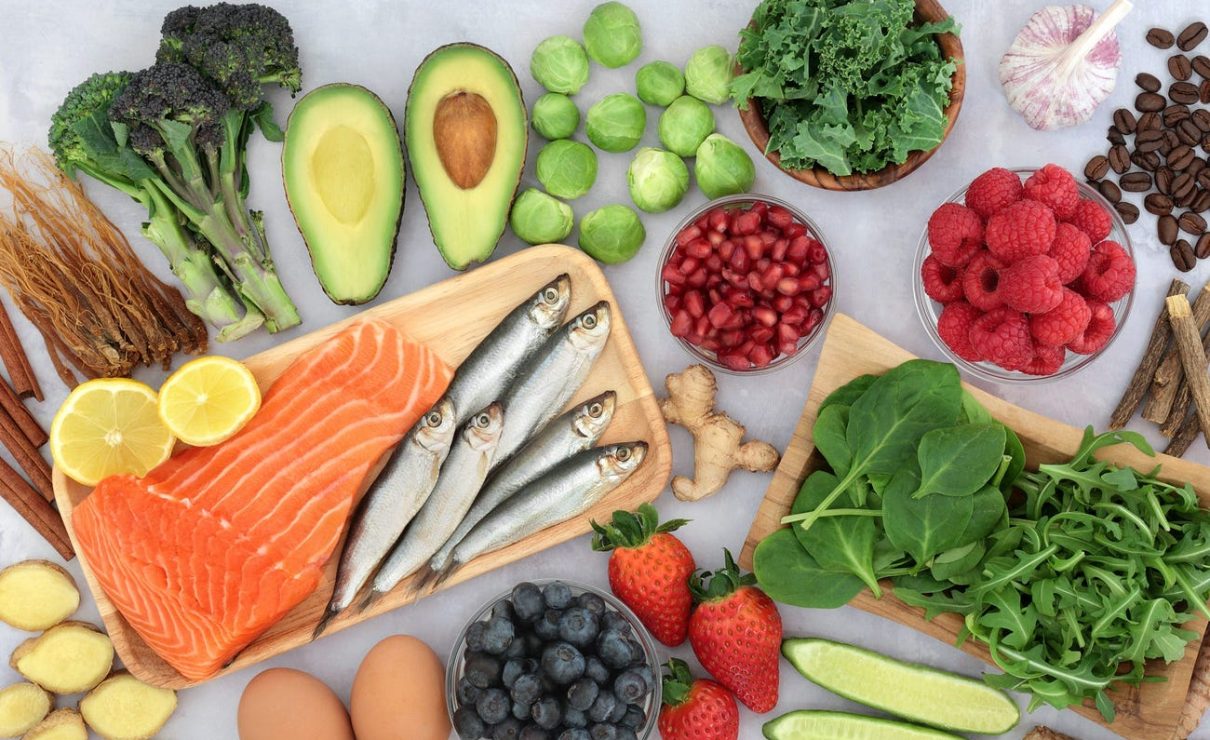What is inflammation?
Inflammatory cells are released when your immune system is activated by your body. These cells fight bacteria or repair tissue injury. You may have chronic inflammation if your body releases inflammatory cells even when you are healthy or uninjured. Numerous chronic disorders, including arthritis and Alzheimer’s disease, exhibit inflammation as a symptom.
The following are the most typical causes of chronic inflammation:
- illnesses where your body assaults good tissue, like lupus.
- exposure to poisons, such as industrial chemicals or pollution.
- acute inflammation that is not being treated, such as from an infection or wound.
- Inflammation in the body is also influenced by certain lifestyle variables. Chronic inflammation may be more likely to occur if you:
- overindulge in booze.
- Unless it is due to being exceptionally muscular, have a high body mass index (BMI) that is within the ranges for obesity.
- You either don’t exercise enough or you exercise too frequently at your maximal effort.
- have persistent tension.
- Smoking regularly
Foods that causes inflammation.
Try avoiding too much of the following food in your day to day diet;
- refined carbs, such those found in pastries and white bread
- Fried foods, such as French fries.
- Sodas and other drinks with added sugar
- processed meat (hot dogs, sausage) and red meat (burgers, steaks)
- Margarine, lard, and shortening.
Inflammation results into variety of diseases such as;
- The metabolic syndrome
- Heart condition
- Diabetes
- Renal illness
How does anti-inflammatory food helps in recovery?
After working out, reducing inflammation is probably the last thing on your mind. It’s more possible that you don’t have time to consider every nutrient in your upcoming meal since you’re racing to the shower, back to class, or to a meeting. However, your post-workout food is crucial. It should also heal muscle damage, replenish lost fluids and electrolytes from sweating, and replenish glycogen stores for upcoming exercises.
Your post-workout regimen should include eating a meal that contains anti-inflammatory foods for better recuperation. After a swim workout, reducing inflammation enables your muscles to recover effectively and gets rid of the pain that can occasionally develop a few hours after a hard activity. DOMS, often known as delayed onset muscle soreness, is what this is. You should eat a meal including some of the foods listed below within 30 to 60 minutes after you’ve finished cooling down to ensure that you’re ready for your next training or competition. You should have some high glycaemic index carbohydrates and perhaps 10–20 grams of protein during this little window of time because it is great for replenishing glycogen stores. Moreover, eating real, entire foods is encouraged.
Anti-inflammatory food list with their chemical components against inflammation.
-
Berries
Berries are little fruits rich in fibre, nutrients, and vitamins. There are numerous kinds. The following are some of the most typical: Strawberries, blueberries, raspberries and blackberries.
Anthocyanins, an antioxidant, are found in berries. The anti-inflammatory properties of these substances may lower your chance of developing disease.
-
Fatty Fishes
Protein and the long-chain omega-3 fatty acids eicosapentaenoic acid (EPA) and docosahexaenoic acid (DHA) are both abundant in fatty fish. These fatty acids are converted by your body into resolvins and protectins, which have anti-inflammatory properties.
Despite the fact that all fish varieties contain some omega-3 fatty acids, the following fatty fish are some of the finest sources:
- Salmon
- Sardines
- Herring
- Mackerel
- Anchovies
-
Broccoli
Broccoli is quite nourishing. Along with kale, Brussels sprouts, and cauliflower, it belongs to the cruciferous vegetable family. Consuming a lot of cruciferous vegetables has been linked in studies to a lower risk of cancer and heart disease. This might be connected to the antioxidants they contain anti-inflammatory properties. Sulforaphane, an antioxidant found in abundance in broccoli, reduces inflammation by lowering levels of nuclear factor kappa B (NF-B), cytokines, and other chemicals that promote inflammation in the body.
-
Avocados
Avocados include heart-healthy monounsaturated fats, potassium, magnesium, fiber, and fiber. They also contain carotenoids and tocopherols, which have been associated with a lower risk of heart disease and cancer.
-
Pepper
Bell and chili peppers are rich in vitamin C and antioxidants that have potent anti-inflammatory properties. Quercetin, an antioxidant found in bell peppers, may help to lessen inflammation linked to conditions like diabetes. Sinapic acid and ferulic acid, which are found in chili peppers, may lessen inflammation and promote healthier aging.
-
Mushrooms
Although there are thousands of different types of mushrooms, only a few number are economically farmed and edible. These consist of shiitake, portobello, and truffle mushrooms.
In addition to being high in selenium, copper, and all of the B vitamins, mushrooms have extremely little calories. Additionally, they contain phenols and other antioxidants that protect against inflammation.
-
Turmeric
Indian cuisine frequently uses the warming, earthy spice turmeric in curries and other foods.
Curcumin, a potent anti-inflammatory component, is one of the reasons it has drawn so much interest. According to research, turmeric lessens inflammation brought on by conditions including diabetes, arthritis, and other illnesses. It might be difficult to obtain enough curcumin from turmeric alone to have a discernible effect. It may be considerably more beneficial to take supplements that contain isolated curcumin.
-
Tomatoes
The tomato is a powerhouse of nutrients. Vitamin C, potassium, and the antioxidant lycopene, which has potent anti-inflammatory qualities, are all abundant in tomatoes. Lycopene may be especially helpful for lowering pro-inflammatory substances linked to several cancer types. You can absorb more of the lycopene found in tomatoes by cooking them in olive oil. As a carotenoid, lycopene is better absorbed when combined with a supply of fat.
-
Extra virgin olive oil
One of the healthiest fats is extra virgin olive oil. It is a staple of the Mediterranean diet, which has several health advantages and is high in monounsaturated fats. According to research, consuming extra virgin olive oil in addition to a Mediterranean diet can considerably reduce inflammatory indicators. Olive oil contains an antioxidant called oleocanthal, whose effects have been similar to those of ibuprofen and other anti-inflammatory medications. Keep in mind that extra virgin olive oil is better at reducing inflammation than refined olive oil.
-
Cherries
Cherries are sweet and full of anti-inflammatory antioxidants including anthocyanins and catechins. Sweet cherries may also provide health benefits, even though tart cherries have been more extensively researched than other types.
-
Dark chocolate
Rich, gratifying, and tasty dark chocolate is available. Additionally, it is abundant in antioxidants, which aid to lessen inflammation. These could lower your risk of contracting an illness and promote healthier aging. The anti-inflammatory properties of chocolate are due to flavanols, which also support the health of the endothelial cells that lining your arteries.



